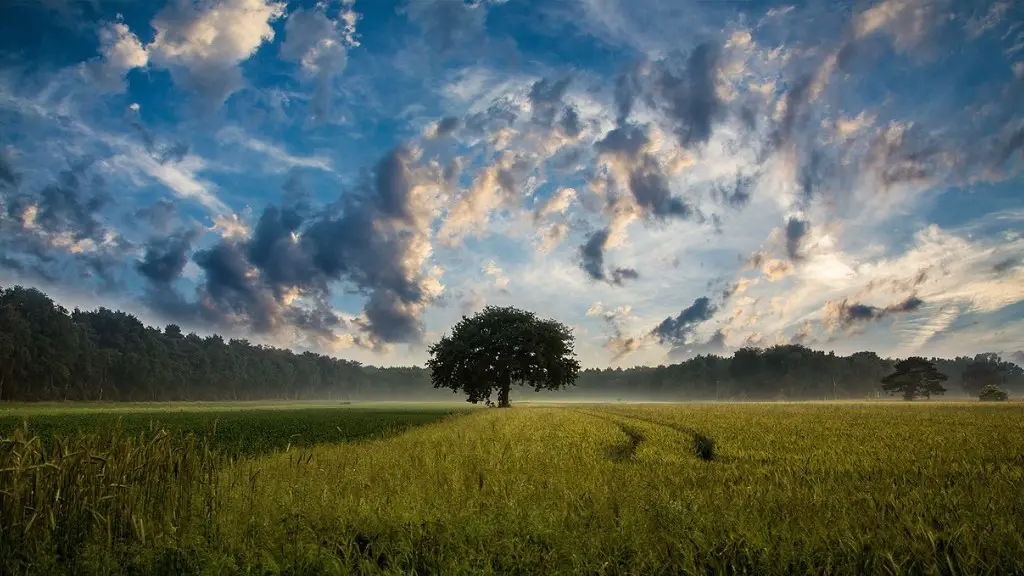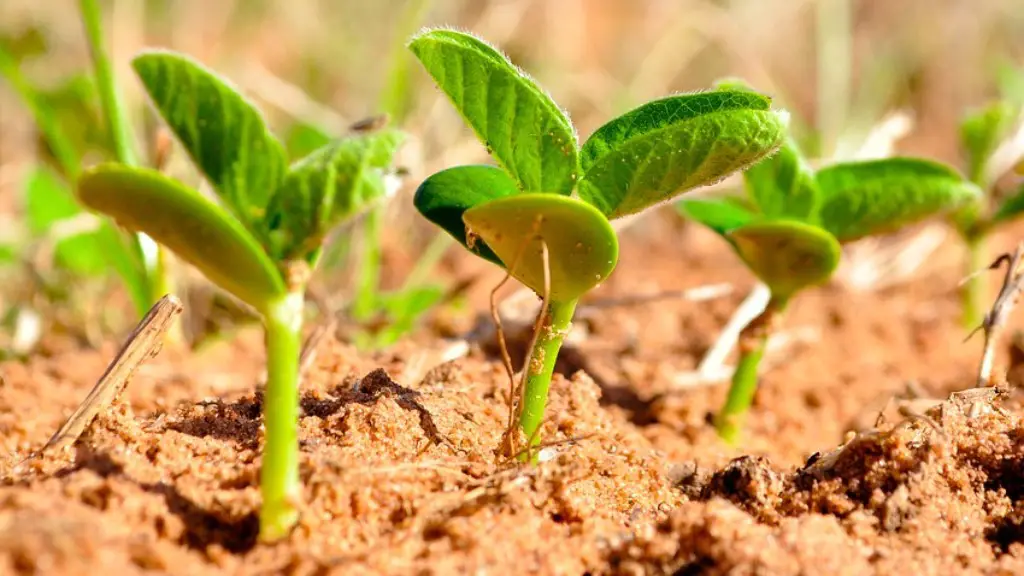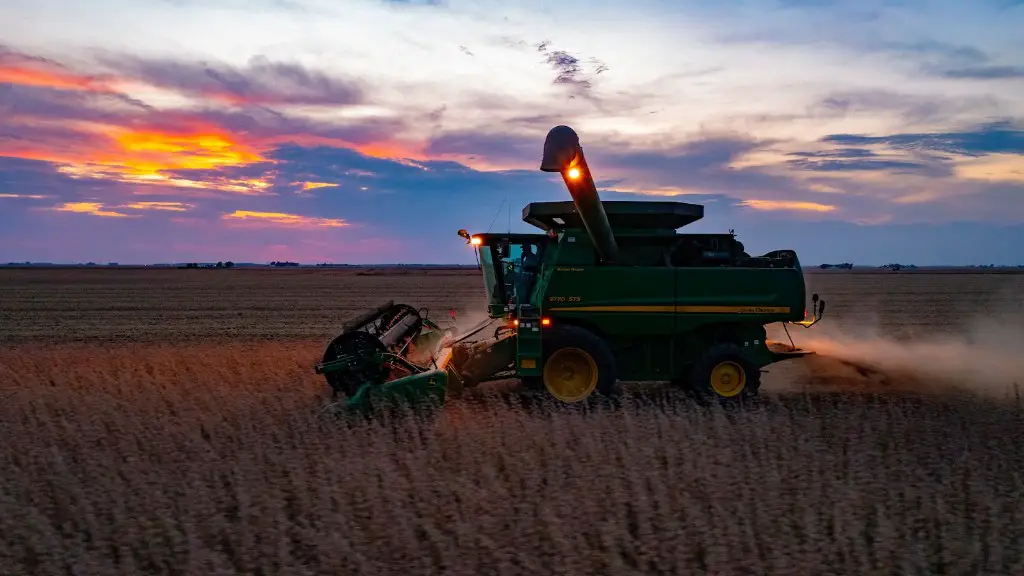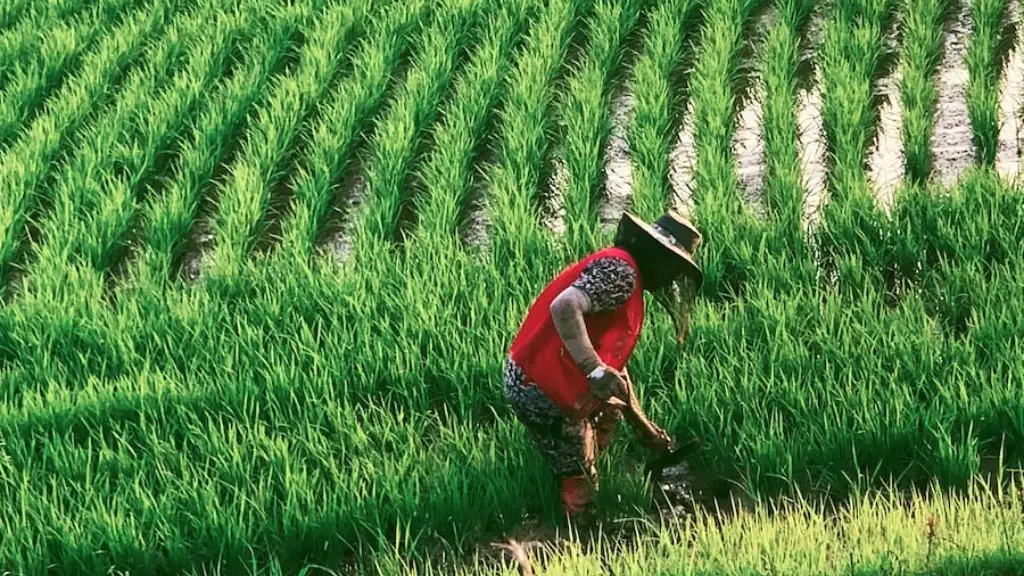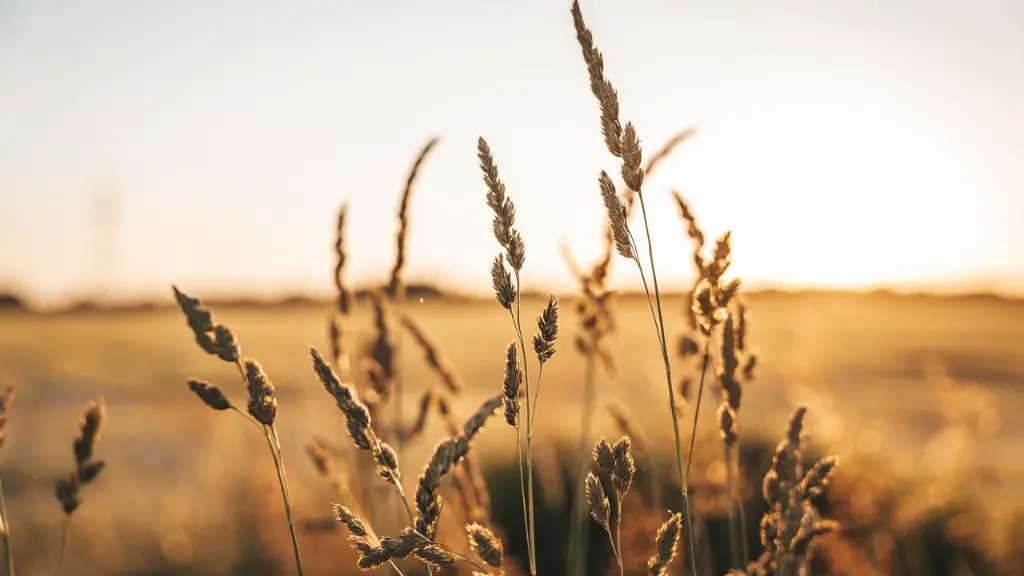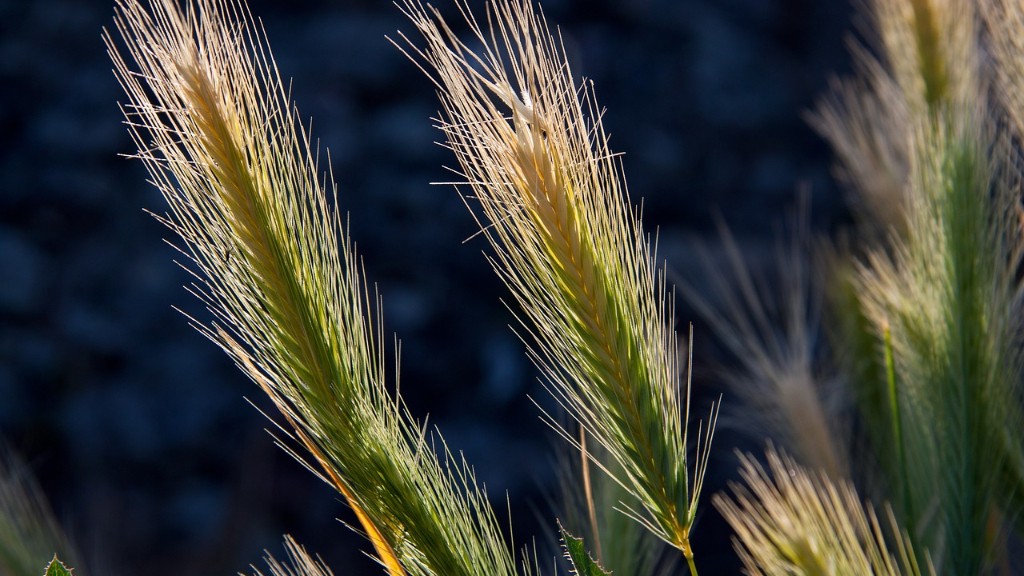In spite of the fact that farming is essential for human civilization, it has many drawbacks. First, agriculture is very labor intensive. It requires a lot of people to work long hours in often difficult and dangerous conditions. Moreover, even with all of this effort, farming is still very unpredictable. The weather can ruin crops, pests can destroy them, and illness can kill livestock. All of these factors make it very difficult for farmers to make a living.
Another problem with agriculture is that it is often very harmful to the environment. Agriculture requires the use of large amounts of water, which can lead to drought. It also involves the use of pesticides and other chemicals, which can pollute the air, water, and soil. In addition, farming often involves the clearing of large areas of land, which can destroy habitats and disrupt ecosystems.
All of these problems with agriculture show why it can be bad for both people and the environment. Though it is necessary for our survival, we need to be aware of its potential negative impacts.
There are a number of reasons why agriculture can be considered bad. First, it can lead to the depletion of natural resources, as farmers may need to clear large tracts of land to create fields. This can cause rainforests to be destroyed, animals to lose their habitats, and soil to become eroded. Second, agriculture can require the use of harmful pesticides and other chemicals, which can contaminate the environment and potentially harm human health. Third, intensive agriculture can lead to the over-grazing of land, which can cause desertification.
Why was agriculture a bad idea?
Farming allowed for the domestication of plants and animals, which led to the development of civilizations. This in turn led to the rise of social classes, with those who owned the land and the means of production becoming the ruling class, and those who did not becoming the working class. This class divide has led to much conflict and suffering throughout history.
It is widely believed that the rise of farming led to some of the worst mistakes in human history. In an effort to increase food production, we forced ourselves to choose between limiting population or trying to increase food production. Unfortunately, we chose the latter option and ended up with starvation, warfare, and tyranny.
What are 3 problems of agriculture
Setting the table to address the triple challenge means creating a plan that considers all three challenges at once. This is the only way to make sustainable progress on any of them.
The loss of agricultural land and the decrease in the varieties of crops and livestock produced are two major problems in agriculture. Agricultural land is being lost to development and other uses at an alarming rate, and the number of crop and livestock varieties produced is decreasing. This is a serious problem because it threatens our food security. We need to do something to stop the loss of agricultural land and to increase the number of crop and livestock varieties produced.
What are two negative effects of agriculture?
The large-scale, conventional farming system is not sustainable in the long run. It contributes to climate change, pollutes air and water, and depletes soil fertility. We need to move towards more sustainable farming practices that are less dependent on fossil fuels, pesticides, antibiotics, and synthetic fertilizers.
It’s fascinating to think about how our ancestors’ lifestyles may have impacted their physicality. According to this article, it seems that when humans switched from hunting and foraging to farming, they lost inches in height due to malnourishment. This is likely because their diet became more limited and lacking in nutrients. It’s interesting to think about how our current lifestyles may be impacting our health in ways that we don’t even realize.
Why do people not like farming?
The unemployment rate among educated youth in India is very high. One of the main reasons for this is that there are not enough institutions that provide jobs. The youth are also not attracted to the farming profession as there is neither guarantee of income nor enough institutions that provide jobs. At present, only a few crops get a Minimum Support Price (MSP) guarantee from the government. The government needs to provide more support to the farming sector in order to encourage the youth to take up this profession.
The high cost of fuel and fertilizer had a severe impact on farmers and ranchers last year, as they navigated the fall harvest season. The cost of fertilizer increased by more than 60% from 2021 to 2022, while the price of fuel rose steadily throughout the year. This put farmers and ranchers in a difficult position, as they had to choose between investing in their operations and taking care of their families. This issue is still at the forefront this year, and it is important that we find ways to help farmers and ranchers reduce their costs.
What are at least 3 cons to our agricultural practices
Intensive farming, also known as industrial agriculture, is a type of farming that involves large-scale production of crops and livestock. This type of farming has several disadvantages, including deforestation, soil degradation, water pollution, and climate change.
Deforestation is one of the biggest problems associated with intensive farming. This type of farming requires large amounts of land, which means that trees are often cleared to make way for crops and livestock. This can have a devastating impact on the environment, as trees play an important role in regulating the Earth’s climate and keeping the soil healthy.
Soil degradation is another significant problem associated with intensive farming. This type of farming often involves the use of harmful chemicals, such as pesticides and herbicides. These chemicals can degrade the quality of the soil, making it less able to support plant growth. Additionally, intensive farming often leads to the expansion of new lands, which can impact natural habitats.
Water pollution is another environmental issue that is caused by intensive farming. This type of farming often uses large amounts of water, which can lead to contamination of water sources. Additionally, the use of chemicals can also pollute water sources.
Climate change is another major issue that is associated with intensive farming. This type of farming often emits
Supply chain shortages and bottlenecks have become a major issue for farmers and ranchers in recent years. These shortages have led to increased production costs and inflation, and have made it difficult for farmers to find machinery parts and transport their commodities. These shortages are a major concern for the agricultural industry, and are likely to continue to impact farmers and ranchers in the years to come.
What are the 5 major consequences of agriculture?
Soil fertility loss, eutrophication of water bodies, deforestation, climate change and pesticide pollution are all environmental effects of agriculture. Soil fertility loss occurs when the nutrients in the soil are depleted by crops. Eutrophication of water bodies occurs when nutrients from agricultural runoff enter water bodies and cause excessive growth of plants and algae. Deforestation occurs when trees are cleared to make way for cropland. Climate change occurs when greenhouse gas emissions from agriculture contribute to global warming. Pesticide pollution occurs when pesticides used in agriculture contaminate air, water and soil.
There are many reasons to consider relocating to Canada today. Canada is a modern, industrialized country with a highly skilled workforce. It also has a strong education system and is home to many world-class universities. Additionally, Canada has excellent infrastructure and social amenities. Finally, it is a safe and welcoming country with a diverse population.
Why youth are not interested in agriculture
Youths these days are mostly not interested in farming and agriculture. They have a perception that it is an old and unprofitable profession. In a conference organized for youths, almost all the youth respondents are of the view that the main reason for their repulsion from practicing farming is that farming is non-lucrative. The youth these days want to explore new and more profitable avenues, and they do not see farming as a viable option. This is changing the face of agriculture and farming, and in the future, we may see fewer people taking up this profession.
It is no secret that modern farming methods have put a strain on the world’s natural resources. From the overuse of fertilizers leading to the loss of soil fertility, to the depletion of groundwater reserves from irrigation, it is clear that these methods are not sustainable in the long term. What is also clear, however, is that these methods require a great deal of capital to be successful. This means that, for the time being, they are likely to continue to be used by those who can afford it.
How did humans survive before agriculture?
Hunter-gatherer cultures are those that forage or hunt food from their environment. Often nomadic, this was the only way of life for humans until about 12,000 years ago when archaeologic studies show evidence of the emergence of agriculture.
Hunter-gatherers have to be constantly on the move in order to find enough food to sustain themselves. This can make for a tough and dangerous life, but it also has its rewards. Hunter-gatherers often live in close harmony with nature and have a deep understanding of the animal and plant world around them.
The agricultural revolution was a pivotal moment in human history, as it marked the transition from a nomadic lifestyle to a settled one. This shift allowed for the development of villages, towns, and eventually cities, as people no longer had to migrate in search of food. The increased food production that came with farming also allowed for a population boom, as more people could be supported by the land. The agricultural revolution was thus a key driver of civilization itself, and its impact can still be seen in the world today.
How did agriculture bring disease
The Agricultural Revolution led to people becoming more reliant on one or two crops, which often resulted in diets lacking in protein, minerals, and vitamins. Additionally, people began living in larger groups and staying in the same place, so there was more opportunity for transmission of diseases.
Based on the research, it seems that many farmers are unhappy with their profession. They don’t make much money, it’s a high-risk job, and they don’t have much social status. However, they stick with it because they don’t have many other options. It’s important to remember that agriculture is a vital part of our economy and society, so we need to support farmers as much as we can.
Warp Up
There is no definitive answer to this question as opinions will vary. Some people may feel that agriculture is bad because it can lead to environmental degradation, such as deforestation and soil erosion. Others may believe that it is bad because it can contribute to social inequality, as those who own land and resources may have more power than those who don’t. Ultimately, it is up to each individual to decide why they believe agriculture is bad.
There are a few reasons why agriculture may be considered bad. First, it can lead to deforestation as trees are cleared to make room for crops. Second, it can require the use of harmful pesticides and fertilizers that can pollute the environment. Third, it can require large amounts of water, which can lead to drought in areas where agriculture is practiced. Overall, agriculture can have negative impacts on the environment, but it is also necessary for human survival.
